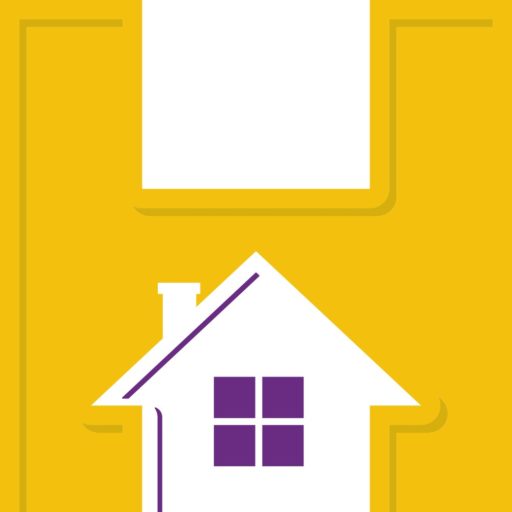The coronavirus pandemic came seemingly out of nowhere. The sudden hit of this virus brought drastic changes to life as all of us knew it. While some are incredibly blessed by having it only change the location from where they work, others were affected more dramatically. Families are experiencing major hardships during COVID-19, ranging from unemployment to displacement. Whether it’s your family that needs help, or someone you know is struggling, Safe Harbor IM is here to help with resources.
Family hardships during COVID-19

Photo by Karim MANJRAon Unsplash
If your family is fortunate enough to escape any struggles brought on by the pandemic, you may not even be aware of the hardships it has brought for so many others. The statistics regarding familial issues from COVID are telling enough.
- According to AAP News and Journals, 43% of adults report they have lost their job, had their hours cut back, or know someone who has.
- For the majority population surveyed, 41.5% said they were able to transfer to work from home. Only 25% of low-income, or Hispanic families were able to say the same, the same source said.
- Urban Research Institute reported that 31% of adults could not pay rent, mortgage or utility bills.
- A study by Feeding America projected that the number of people experiencing food insecurity nationwide would increase by 17 million due to COVID-19.
There are other factors of the pandemic affecting families, as well. In many states, children are doing virtual learning. Having children home all day forces parents to find child care that they wouldn’t need to otherwise. Some parents can’t afford to pay for childcare, so they stay home themselves, but that means they can’t go to work. A lot of parents rely on school to provide breakfast and lunch for their kids, too.
It’s clear that from these statistics, the pandemic has not been easy for families to navigate. Many have been evicted from their homes, lost jobs, and are struggling to provide for themselves and their children.
How to help

Photo by Neil Thomason Unsplash
If you have the resources and the heart to help, we encourage you to. Your efforts would help ease some of the difficulties plaguing families right now. It’s not a small feat to solve, but every contribution does count.
- Donate to your local food banks. As seen from the statistics above, many people are newly finding themselves facing food insecurity. Feeding America has a database so you can easily locate the food banks around you. It’s important to note that money is a bit more useful to these organizations right now. Monetary donations allow them to allocate specific resources where they need them. However, if you do have extra food from your pantry, that always helps, too.
- Homelessness is an immediate threat for a lot of families right now. Donating to your local homeless resource centers is a good way to provide support. National Homeless has a database to help you find these local organizations.
- Support your local businesses/organizations. Buying from these places will directly support people in your community who run the business, or who are employed by it. Additionally, the resources mentioned in this article are all made possible by incredible organizations. Many of the issues these organizations aim to provide help for are being exacerbated by stay-at-home orders. Domestic violence and child abuse are two examples whose rates were set to increase during lockdowns. Donating to organizations or non-profits like ours will greatly help our leaders do their jobs to minimize and protect in-need communities.
Resources for your family
If your family needs assistance during this time, know that you are not alone. So many families are in the same boat, and although it’s definitely not easy. There are resources that can help you. The Safe Harbor International Ministries center is located in Georgia, and we are here to support families experiencing trauma in many Georgia counties.
For families located in other states, the databases linked in the section above can help you find your local food banks or homeless centers. There are also many online resources that can help get you in touch with other services, should your family need.
- The Red Cross Virtual Family Assistance Center is set up to provide behavioral health, spiritual health, and health services to families nationwide.
- The Children’s Defense Fund has an amazing page on their website where they showcase links to pages for 10 different kinds of help families could need right now. These include financial assistance, health coverage, child welfare, and immigrant families needing aid.
Conclusion
This year hasn’t been easy for anybody. As Safe Harbor International Ministries is always on the side of families, we acknowledge the newfound challenges many are facing during this pandemic. Even if your family doesn’t need any financial or other physical support, you could just as well need emotional support. These times are unsettling, and living in uncertainty for so long often brings emotional distress. I know it has for me personally, and I know I’m not alone. Turning to my faith during this pandemic has really helped me trust that things will be okay.
The Safe Harbor Prayer Garden is set up to provide you with relaxing prayers to listen to at any time, or to take your submissions for specific prayers you want support with.
We hope this article provided you with some insight into the help your family can give or receive during COVID-19.
“When I am afraid, I will put my trust in you.” Psalm 56:3
Written by Grace Haass, blogger at Safe Harbor International Ministries. For more articles, check out our blog page at https://safeharborim.com/articles/


0 Comments